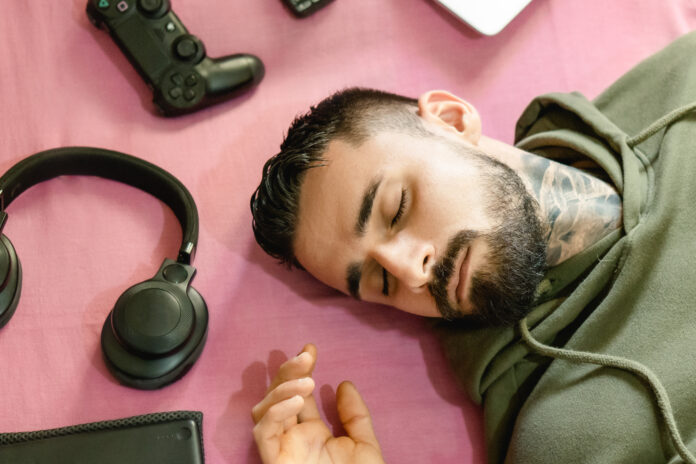Many people become frightened when they hear the term sleep apnea. It is true that sleep apnea is an extremely serious health problem, but the good news is that it can be treated and managed effectively. The key is knowledge and education. This article contains treatment advice and health care tips related to sleep apnea.
If you have moderate to severe sleep apnea, lose some weight. Being over-weight or obese can affect your breathing severely and can cause many health problems, including sleep apnea. Those individuals who lost at least twenty to twenty-five excess pounds saw a marked improvement in respiratory issues related to sleep apnea.
Make sure that the mask you use on your CPAP machine fits properly. Often, people will stop using their CPAP because the mask does not fit right. If your mask is uncomfortable, try getting a different mask. There are many different masks available, so choose one that fits right and is comfortable to use.
Consider doing a few very specific exercises before going to bed each night, to alleviate some of your sleep apnea symptoms. Exercising throat and tongue muscles has been proven in scientific studies to reduce snoring, improve breathing and lessen the more profound effects of sleep apnea when done according to doctor’s orders.
Improve your sleep apnea by slimming down a bit. Recent research showed dramatic improvements in overweight men who shed 25 pounds over a period of one year to reduce sleep apnea symptoms. In some cases, the weight loss resulted in a cure of sleep apnea where no further treatment of the condition was necessary.
There are three different types of sleep apnea. Obstructive, central, and complexes are all forms of sleep apnea. You need to go to the doctor and have a professional assess which type of sleep apnea you have, so they can offer the best treatment and advice for your specific condition.
Try using a mouth guard to help you sleep. These oral devices are specially made for sleep apnea sufferers. This is something that works well instead of using a CPAP, and it’s more comfortable. The soft tissues are given the support that they need to keep the airways open.
For the sleep apnea patient using CPAP treatment, the wide range of options in machines and masks can seem overwhelming. The key to selecting the best equipment for your needs is to test out the various models yourself. Your Durable Medical Equipment (DME) provider should have a variety of masks and accessories available for you to try out. Don’t settle for the “standard” company mask. Insist on viewing several and being fitted properly. Comfort and good fit are key to successfully adjusting to CPAP treatment.
Consider putting yourself on a strict bedtime schedule and routine, if sleep apnea is keeping you from a good night’s sleep. Doing the same things at the same time may help condition your mind and body to better sleeping, and if you suffer from sleep apnea, you need all the help you can get!
If you suffer from sleep apnea, you should treat any sinus or allergy problems you may have. Because you already suffer, this should at least alleviate one of many sleep problems. You do not need anything else reducing your ability to get air while you sleep. Keeping your airway free and clear by treating your nasal problems gives you a much better chance of sleeping through the night without problems.
Doctors often recommend that sleep apnea patients consider treatment with a CPAP – Continuous Positive Airway Protection – mask and machine. The machine sends air through a hose to a mask covering your nose. The purpose is to help keep your airway open so you are breathing normally as you sleep. While the machine may initially seem a little foreign and uncomfortable, a great many patients adapt quickly and find they are getting much more restful sleep as a result.
A proven tip to reducing and preventing sleep apnea is to try sleeping on your side. You should avoid sleeping with your face up on your back. Gravity will cause the tongue and tissues in your neck fall back and block your airways. So sleep on your side for a better nights sleep.
If you have sleep apnea and use a CPAP when you sleep at night, do not neglect your filters. It can be easy to forget about this, but you need to make sure your machine operates at maximum efficiency. Wash your reusable filter at least every week, and replace your white pollen filter at least once a month.
Prior to going to bed, it is important to open up your nasal passages. This is so that you get enough air flow. To open up the nasal passages, you may want to use saline spray, a nasal dilator, a neti pot, breathing strips or whatever your doctor may have recommended.
While it is common sense to avoid some things before sleeping, like caffeine, many people load up their plates and then go to bed. This is not healthy in general and can worsen sleeping issues like apnea. Avoid eating any heavy meals before going to bed and you will find yourself sleeping better.
Change your sleeping position. Studies have shown that people who sleep flat on their backs tend to worsen their sleep apnea symptoms. Try to sleep on your side or stomach instead of your back to improve your sleep apnea. It may feel unusual at first, but your body will get accustomed to the new position and you’ll be thankful for the good night’s rest.
As was stated in the opening paragraph of this article, although sleep apnea is a serious medical problem, it can be effectively treated. The key is to educate yourself on the nature of the disorder and to read up on all of the treatment options. Apply what you have learned from this article to help you treat your sleep apnea.



